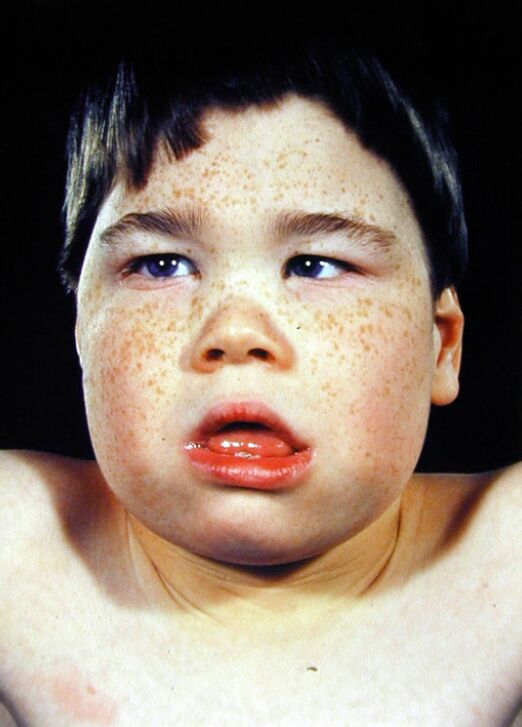Understanding rare genetic conditions is crucial for healthcare providers and families alike. ARTX syndrome, also known as ATRX syndrome or Alpha-Thalassemia X-Linked Intellectual Disability syndrome, is a rare genetic condition that primarily affects males. This comprehensive guide explores the causes, symptoms, diagnosis, and management options for individuals living with ARTX syndrome.
What is ARTX Syndrome?
The complexity of genetic disorders often challenges medical professionals and families seeking answers. ARTX syndrome is caused by mutations in the ATRX gene located on the X chromosome. This gene plays a crucial role in normal development, particularly in brain development and the production of hemoglobin. The condition is characterized by distinctive facial features, developmental delays, and intellectual disabilities.

Key Symptoms and Characteristics
Recognizing the signs and symptoms of ARTX syndrome is essential for early intervention and proper care management. The condition manifests through various physical, developmental, and medical features that require careful attention and monitoring.
Physical Features
– Distinctive facial characteristics
– Small head circumference (microcephaly)
– Widely spaced eyes
– Small nose with upturned nostrils
– Thick upper lip
– Protruding front teeth
– Skeletal abnormalities
– Short stature
– Hypotonia (low muscle tone)
Developmental and Cognitive Features
– Moderate to severe intellectual disability
– Delayed developmental milestones
– Speech and language difficulties
– Learning challenges
– Behavioral issues
Medical Complications
– Mild to moderate alpha-thalassemia
– Gastrointestinal problems
– Genital abnormalities
– Seizures in some cases
– Heart defects (in some individuals)
Diagnosis
Early and accurate diagnosis plays a vital role in managing ARTX syndrome effectively. Healthcare providers use a combination of clinical observations and advanced testing methods to confirm the presence of this genetic condition.
Diagnosis of ARTX syndrome typically involves:
1. Clinical evaluation
2. Genetic testing
3. Family history assessment
4. Blood tests to check for alpha-thalassemia
5. Developmental assessments
Treatment and Management
Managing ARTX syndrome requires a comprehensive approach involving multiple healthcare specialties and support systems. While there is no cure, various interventions can help manage symptoms and improve quality of life:
Educational Support
– Special education programs
– Speech and language therapy
– Occupational therapy
– Physical therapy
– Behavioral intervention programs
Medical Management
– Regular medical monitoring
– Treatment of specific symptoms
– Management of complications
– Coordination of care among specialists
Family Support
– Genetic counseling
– Support groups
– Resources for caregivers
– Educational advocacy
Living with ARTX Syndrome
The journey of living with ARTX syndrome presents unique challenges for both individuals and their families. Understanding these challenges and available support systems is crucial for maintaining quality of life. Each individual with ARTX syndrome has unique needs and challenges. Early intervention and comprehensive support can significantly improve outcomes. Families should work closely with healthcare providers to develop personalized care plans.
Research and Future Directions
Scientific advancement continues to bring hope to families affected by ARTX syndrome. Ongoing research continues to expand our understanding of ARTX syndrome. Scientists are investigating:
– New treatment approaches
– Gene therapy possibilities
– Better diagnostic tools
– Understanding of the condition’s natural history
Resources for Families
Navigating life with ARTX syndrome requires access to various support systems and resources. Families need comprehensive support to ensure the best possible outcomes for their loved ones. Available resources include:
– Support groups and organizations
– Educational materials
– Healthcare provider directories
– Financial assistance programs
– Advocacy resources
Conclusion
ARTX syndrome presents unique challenges for affected individuals and their families, but with proper medical care, educational support, and family resources, many people with this condition can lead fulfilling lives. The key to success lies in early diagnosis, comprehensive treatment approaches, and ongoing support from healthcare professionals and community resources. As research continues to advance, new treatment options and therapeutic approaches may offer additional hope for individuals affected by ARTX syndrome. It’s essential for families to stay connected with medical professionals and support networks to ensure the best possible outcomes for their loved ones.

